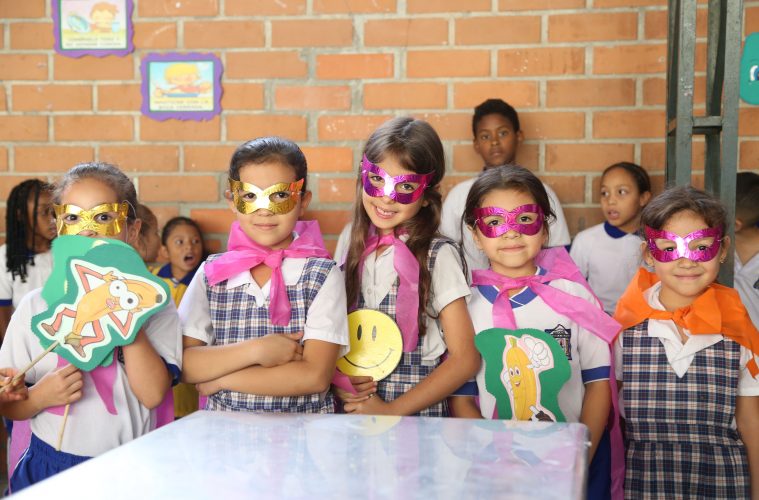Seven teachers, who participated in the capacity building program of the Innovation Lab for Education of Ruta N, present their projects and inform us how their projects contribute to innovation in education and peace.
Improving quality of life for the inhabitants of Medellín through innovation – that’s the goal of the Colombian innovation and business center “Ruta N”. The “Innovation Lab for Education” is part of the center and aims to enhance the education system in order to foster local talent to develop an economy of knowledge in the city of Medellín. In the following, two groups of teachers present the projects they developed in their institutions with the support of the Innovation Lab.
Ruta N is a Medellín based public corporation to implement the public policies for science, technology and innovation. It has been founded with the goal to support the development of the city in form of an innovation hub that attracts businesses and investors and thereby provides economic development and jobs for the local population. At this point in time, there are many foreign experts that work in the sectors of science and technology. The vision of Ruta N is to foster local talent and thereby develop the city, to create local solutions to challenges and eventually share these on international level.
The Innovation Lab for Education was founded in October 2017 and has invested in the personal development of teachers of twenty public and private schools in the city. Its aim is to advance the education system in Medellín by encouraging a shift from an industrial economy towards an economy of knowledge. Therefore, they offer a program where different educational institutions can participate and create a project for their students that addresses an identified challenge of their daily operations. By doing so, they aim to prepare teachers and students to meet the requirements of an economy based on science and technology.
The Lab developed the model of an Education Ecosystem which explains the cooperation between Ruta N and the teachers, and two other main audiences: start-ups and foundations. The first component of the ecosystem is the Innovation Lab itself, where the teachers are formed from teachers to designers of new teaching-learning experiences. They pass through a process of four sprints based on agile methodologies from the software industry to identify a challenge at their institution, think of possible solutions, implement them, measure the outcomes of their project, and give a final presentation of what they have achieved in half a year in which they were accompanied by the Lab. The last step leads them to the following stage, where they get the opportunity to connect to investors, startups, and companies in order to move their project one step further: from pilot to strengthening and continuing the implementation. Now they can also consult national and international experts for suggestions on their processes.
Problems are transformed into challenges and scarcity of resources into an abundance of ideas.
Overall, the aim is to provide a space for the teachers to develop their own abilities in questions of project management from initiation to implementation, evaluation and socialization. In this process, problems are transformed into challenges and scarcity of resources into an abundance of ideas. Moreover, the projects they design and execute benefit their students and institutions, which will lead to a general transformation of the education system towards an education based on the students’ needs and actual daily challenges. They are supported in becoming creative and autonomous citizens. On the following pages, two groups of teachers share their projects and achievements throughout the time they worked with the Innovation Lab.
Innovation in education beyond borders
In addition to the twenty projects developed by teachers, the laboratory went through during the past year is the creation of an international network focused on innovation in education and peace education. This network focuses on the development of projects that combine the methodology of the laboratory with the methodologies of the University of Cambridge, the University of Innsbruck, the George Mason University, and the Colegiatura Colombiana, starting with a pilot in Medellín and later on expanding to other cities in Colombia and other countries.
Read more about two projects:

